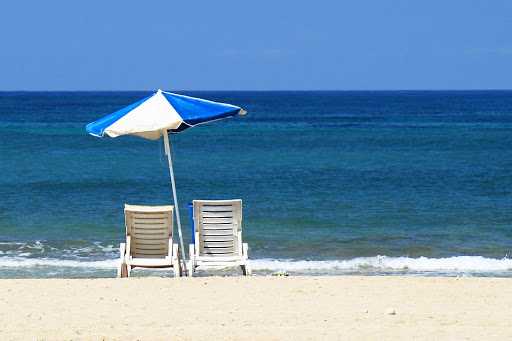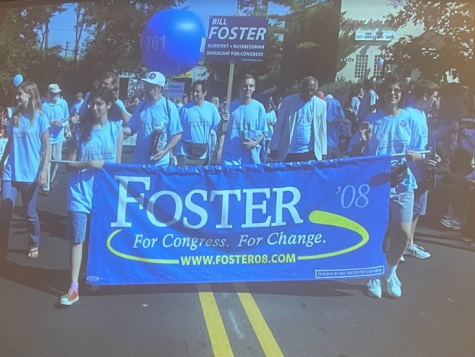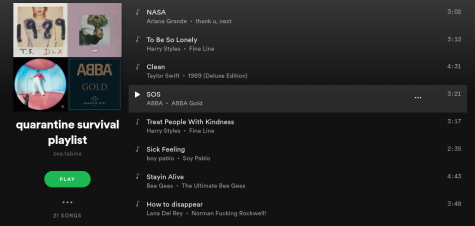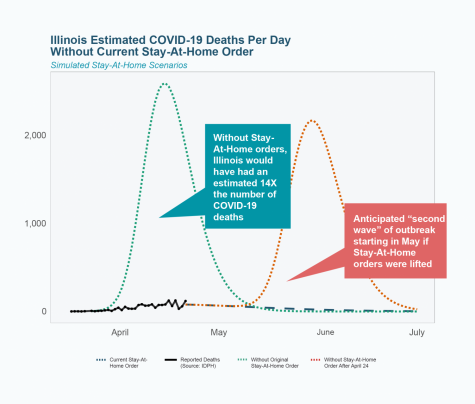Spring break cancelled for many as COVID-19 spreads worldwide

With spring break here and uncertainty regarding COVID-19 increasing, travel plans are up in the air for Naperville North students who have been looking forward to spring break getaways.
The Coronavirus is no longer a far away worry; schools are closed, events are cancelled and a national emergency has been declared. The Center for Disease Control (CDC) advises avoiding groups of over 10 people to stay away from the virus, with the best way of doing this being self-quarantine.
Travel has also become increasingly limited. Following the European travel ban, the United States-Canadian border was also closed to all nonessential travel. Cases across the U.S. are rising, with California issuing the first state-wide shelter in place order on Mar. 19 and 29 states following suit. On Mar. 20, Governor Pritzker announced a “stay at home” order. The U.S is now leading in case numbers, with 144,732 confirmed cases.
With traveling from state to state being discouraged, many families are reconsidering their spring break trips—even short distance ones, requiring just a car ride.
Freshman Megan Colburn was looking forward to her trip to Minnesota until it got cancelled. However, Colburn says she would rather stay home to do her part in flattening the curve, and she urges her peers to make the best of the situation.
“Read a new book, start a project, do things you otherwise would have procrastinated for more time. This is more time, so use it,” Colburn said.
Some states are even asking tourists directly to postpone their trips—Hawaii governor David Ige announced on March 17 that, although their economy will suffer from it, Hawaii is asking that trips are postponed at least 30 days. Although upset by her trip to Kauai being cancelled, sophomore Sophie Golobitsh appreciates the collective disappointment.
“It makes me feel better that I’m not the only person whose spring break plans got cancelled, because at least we’re all going through it together,” Golobitsh said.
International travel is considered even more risky than local travel currently, and on March 19, the State Department issued a level 4 travel advisory to avoid all international travel unless they plan to stay overseas, and told overseas Americans to return home immediately. This is following closure of the U.S.-Canada Border and Trump’s European travel ban.
A group of seniors planned on travelling to Jamaica, but recently cancelled their vacation. Hailey Brezinsky, who was a part of the group, said that it would be selfish of them to travel with the risk of spreading the virus.
“I’m going to try and make the most of it, [because] being negative about it will only make things worse,” Brezinsky said.
Even in lower risk countries, travel bans have been the source of numerous cancellations. Sophomore Christina Gu’s family felt it was much safer not to go to her family’s timeshare in Cancun, Mexico, and avoid the risk of being quarantined for a longer period when they returned.
“Even if I’m not particularly worried about any immediate effects of the virus, it’s not worth it to endanger others around me,” Gu said.
Some families haven’t determined their definite plans for travel this spring break. Kaylin Ditmars, a senior at NNHS, was planning on traveling to Florida for college visits. Her family has decided that if they choose to proceed with their trip, they will drive rather than fly. Although taking public transportation out of the equation helps, there are still other factors to consider.
“We’re most worried about staying in a public place like a hotel, because there’s just no way to keep it completely sanitary,” Ditmars said.
After they canceled their flight, sophomore Jeremy Donofrio and his family switched gears in order to proceed with their trip to South Carolina on the road. Donofrio’s family have been taking a serious precautionary measure before traveling: they have followed a strict quarantine in their household to ensure they don’t get sick before the trip.
If your family is debating travel, be sure to read up on the latest information about COVID-19 and check live updates. Be aware of the permitted travel during stay at home orders and consider the CDC’s list of questions to ask before traveling as well.

Payton is a senior at Naperville North, and is excited to be a first-time staff member at The North Star. She focuses on photography, but is excited to...















